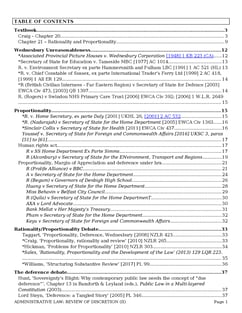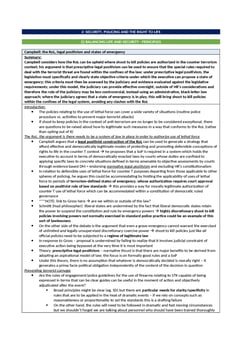R v Criminal Injuries Compensation Board (R v CICB), ex parte A [1999] 2 AC 330
Judgement for the case R v Criminal Injuries Compensation Board (R v CICB), ex parte A
KEY POINTS
The authority to quash a decision of another public body exists when there has been a violation of the principles of natural justice, resulting in unfairness.
Lord Slynn
It does not seem to me to be necessary to find that anyone was at fault in order to arrive at this result. It is sufficient if objectively there is unfairness. Thus I would accept that it is in the ordinary way for the applicant to produce the necessary evidence.
FACTS
A applied for compensation from the Criminal Injuries Compensation Board (CICB) in 1991, alleging that she was assaulted, raped, and subjected to other crimes during a burglary in May 1991. Her initial report to the police did not mention the sexual assault due to her distress and embarrassment. Medical examinations showed physical injuries, but the doctor's notes were unavailable to the Board.
Later, A contacted Victim Support and revisited the police to provide details of the sexual assault, leading to a formal statement. The police conducted investigations but found no substantial evidence supporting her claims.
During the hearing before CICB, A provided testimony consistent with her statement, emphasizing property damage and facial injuries. However, police officers were skeptical of her allegations, and the Board placed the burden of proof on A to establish she was a victim of a violent crime.
The Board's decision was influenced by the delay in reporting the incident and the lack of forensic evidence due to its destruction. They found skepticism about the allegations reasonable. Thus, A’s application for judicial review was significantly delayed because it was not submitted within the 3-month timeframe from when the grounds for the application initially occurred.
JUDGEMENT
Appeal allowed. The Board’s decision was quashed.
COMMENTARY
The case underscores the importance of a thorough and fair evaluation of evidence in compensation claims related to crimes of violence.
It also serves as a reminder that the burden of proof rests on the applicant, but the authorities must conduct a diligent and unbiased investigation to ensure justice is served.
ORIGINAL ANALYSIS
Plaintiff claimed to have suffered rape in the course of a burglary and assault but crucial medical evidence was omitted at the hearing and hence the board did not compensate her for the alleged rape.
HL granted judicial review and remitted the matter to the CICB, since the absence of key evidence breached the rules of natural justice.
Lord Slynn
Personally, he considered that the decision of CICB could be quashed on the grounds of material error of fact, though he preferred to advance on the alternative ground of breach of natural justice.
It is sufficient if objectively there is unfairness.
RELATED CASES
For Further Study on R v Criminal Injuries Compensation Board (R v CICB), ex parte A

Administrative Law notes fully updated for recent exams at Oxford an...
Need instant answers? Our AI exam tutor is here to help.
Ask questions 🙋 Get answers 📔 It's simple 👁️👄👁️
Our AI is educated by the highest scoring students across all subjects and schools. Join hundreds of your peers today.
Get StartedSimilar Cases
Related Product Samples
These product samples contain the same concepts we cover in this case.

